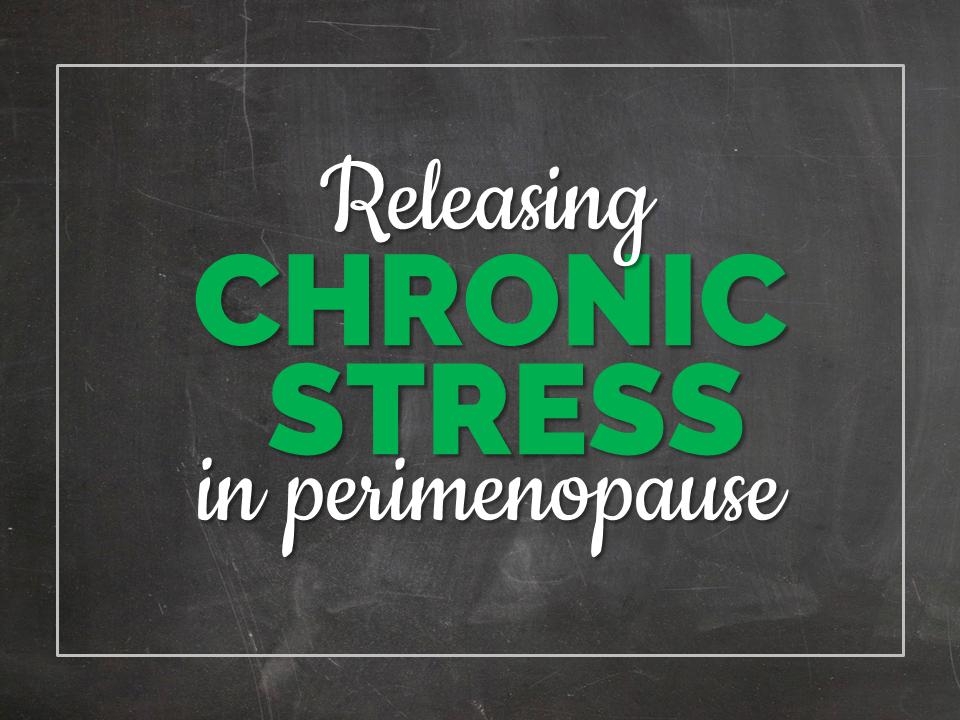Are you stressed?
I know this is a loaded question.
And maybe it’s because the word stress is so overused, that we’re not even sure what it means anymore.
So, what does the word “stress” really mean?
And what does stress feel like emotionally? Physically?
What is stress?
I think stress means so many different things to different people.
But, at its core, stress is pressure.
And, although it may not feel like it, it’s usually pressure we put on ourselves.
Pressure to perform.
Pressure to get things done.
Pressure to get things right.
Pressure to be a certain type of person.
And this pressure, when it feels constant, is called chronic stress.
In your body, it can feel like:
- Tension or pain in your shoulders, neck, or back
- Discomfort in your stomach
- Tightening in your chest
- Not sleeping, or feeling exhausted
- A racing heart
- Headaches…
And emotionally, it’s a frequent feeling of:
- Worry
- Anxiety
- Overwhelm
- Feeling unmotivated
- Depression
- Anger…
What we think causes stress
When I ask someone what’s stressing them out, their answer is usually one of two things:
Work or a relationship.
And in fact, so much of the time, we believe that we’re stressed because of another person.
Our boss, our partner, our children,…
And it seems right to think that a circumstance or another person is the cause.
But the truth is, it’s not.
And we know it’s not because that person or circumstance won’t have the same effect on someone else.
So, in fact, it’s our own thoughts about a person or a circumstance that causes us stress.
We’re actually stressing ourselves out.
Thoughts like, “I have to get this project done by midnight or I’ll be fired,” or “I’m late and she’s not even dressed yet!” or “He never listens to me.”
Although the people and situations may not be right or ideal, the source of the stress is us.
I found this out when I was a kid.
My relationship with stress
I was a stressed kid.
Growing up, I put a lot of pressure on myself.
Between the ages of 7 and 10 I ended up in the hospital a few times.
Abdominal pain, digestive issues.
I was quiet, but I was quietly feeling worried and anxious so much of the time.
Especially at exciting times.
First day of school, summer holidays, Christmas.
I didn’t know it at the time, but it wasn’t that these events themselves were stressful.
It was my thoughts about them.
Thoughts about not knowing where I was going, who would be there, how I would react, or how others would react to me.
Those kinds of thoughts caused me to feel uncertain and anxious.
My relationship with stress continued into my teenage years as a competitive swimmer.
Although I loved swimming, competition exhausted me.
Even before I got in the pool.
And when I started University, I dealt with several bouts of digestive issues once again.
All this stress wasn’t due to swimming or school.
It was a result of what I was thinking.
Thoughts again of uncertainty and the unknown.
Although I hated feeling stressed, it created an incredible awareness within me:
My mind and body were linked.
The mind-body link
Stress comes from an emotion that is felt in the body.
We “feel” stressed, meaning we feel the effects of an emotion in our body, and it doesn’t feel good.
Over the years, I’ve gotten a lot better at recognizing stress within me.
To the point that it’s no longer a chronic issue.
And I’m also aware that stress, in small amounts, is actually a motivator.
We need a certain amount of it to push us forward.
Like the stress right before speaking in front of a large group, or at the start line of a 5K running event.
But when feelings of worry, anxiety, or dread go on and on, it’s not healthy.
So, I’ve learned to deal with the thoughts in my mind, and calm my body.
And now I help my clients do the same.
Chronic stress in mid-life
I know that if I can release stress and feel better, so can you.
It’s a big reason why I coach.
Because chronic stress is affecting so many of us.
It’s a thing.
And it’s big.
But you may not be aware of it because of years of living with it.
With life moving so fast, and with the high expectations we put on ourselves, chronic stress can be like a low hum in a noisy room.
It’s there, but you only notice it when the noise is gone.
Or when the hum gets louder… Like it does in perimenopause.
In perimenopause, the hum of chronic stress can get our attention as…
- Increased fat, especially belly fat, and difficulty in losing weight
- Back pain
- Trouble falling asleep or staying asleep
- Mood swings
- More frequent illness, from simple viruses to major diseases…
But the good news is, you can become aware of it and do something about it.
You can heal yourself from chronic stress.
And get your body feeling and working a whole lot better.
And I can help you do that.
Keep moving forward my friend,
Debbie
P.S. Do you think stress is causing you to gain or retain weight? Or is it interfering with your physical or emotional well-being? I can help. Just REPLY to this email, or book a time to talk to me. You can manage stress, and it can be done simply.


